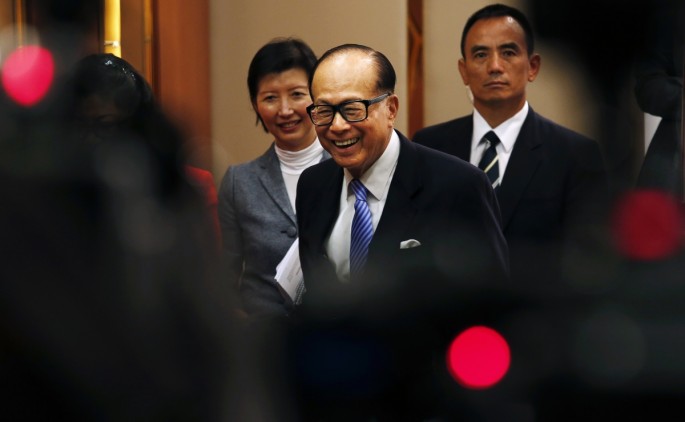Business magnate and Cheung Kong Group CEO Li Ka-Shing has urged the Hong Kong administration to greenlight an electoral reform plan that will allow each of the region’s 5 million adult residents to vote for Hong Kong’s chief executive in 2017.
"The country is providing us with an opportunity and the people of high responsibility and love [of the motherland] should seek to ensure the reform is passed," Li said during the annual performance report of Cheung Kong Group in Hong Kong on Thursday.
"We all lose if electoral reform cannot be achieved."
Under the framework of the Decision by the National People's Congress (NPC) Standing Committee, universal suffrage is expected to replace the old system of 1,200 electoral committee members choosing the next chief executive.
Li also expressed his confidence on mainland China's economy under the "new normal" phase, which is highlighted by Beijing's proactive fiscal and sound monetary policies as well as an intensive anti-corruption campaign.
The mainland is the backbone to Hong Kong's prosperity, he stressed, adding that the demand for housing is expected to increase along the rise in incomes and livelihood of mainland Chinese and continued GDP growth.
Although speculation on his retirement has been rising in recent years, the 87-year-old tycoon also said that he will not relinquish his post until the group has entered a new business phase.
Praising his son Victor Li Tzar-Kuoi, vice chairman and managing director of Cheung Kong Holdings, Li explained he was staying because he is still capable of handling the business and guiding the group's future and not because of the potential drop of investor confidence should he depart the company.
Cheung Kong Group expects to sell 7,000 to 8,000 housing units via its real estate arm by the end of the year, along with an 11-percent growth from its flagship retail brand Watsons.
The group is also eyeing potential overseas acquisitions to expand its retail business from 11,000 to 12,000 stores by the end of 2015, Li said.



























